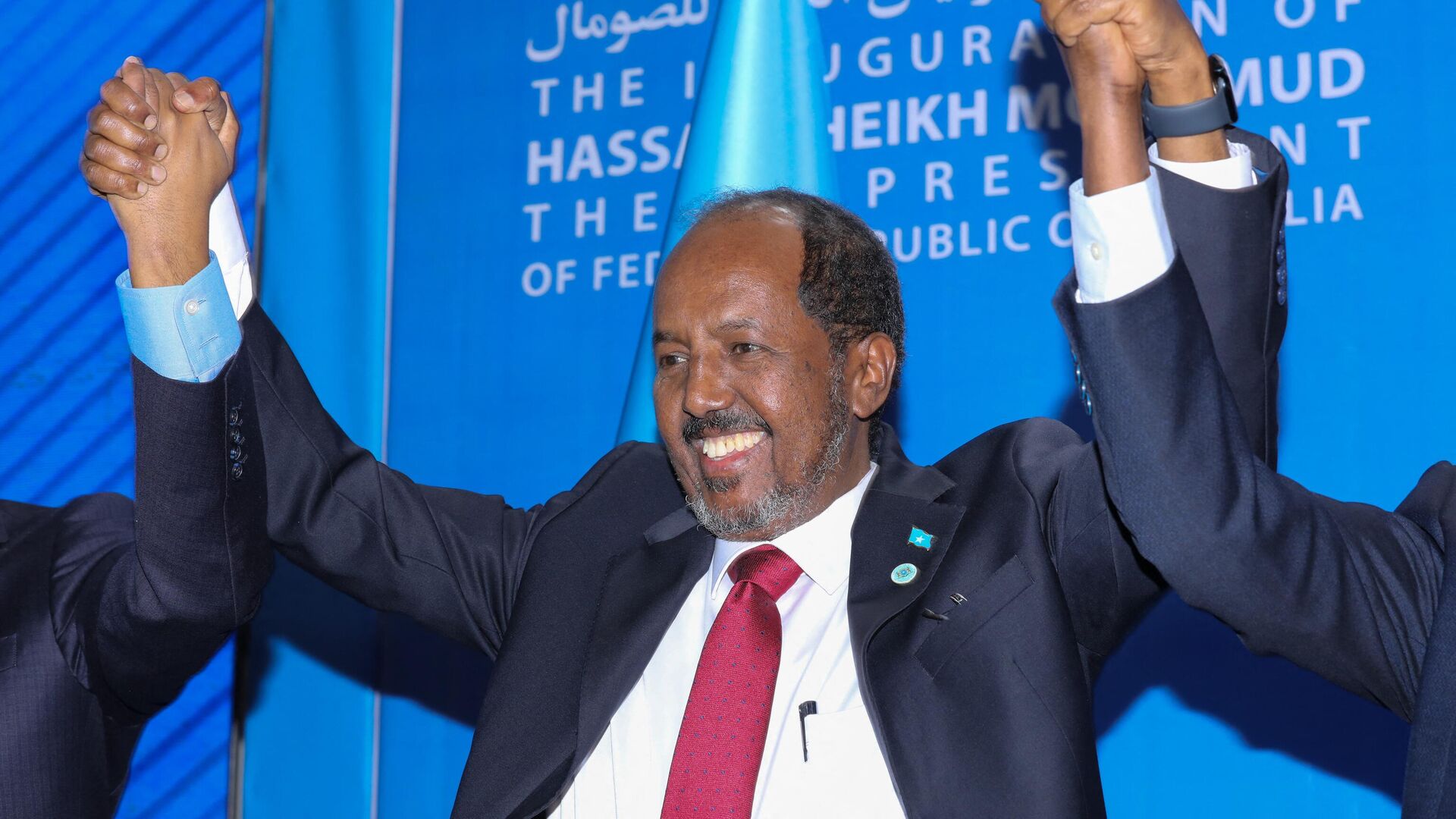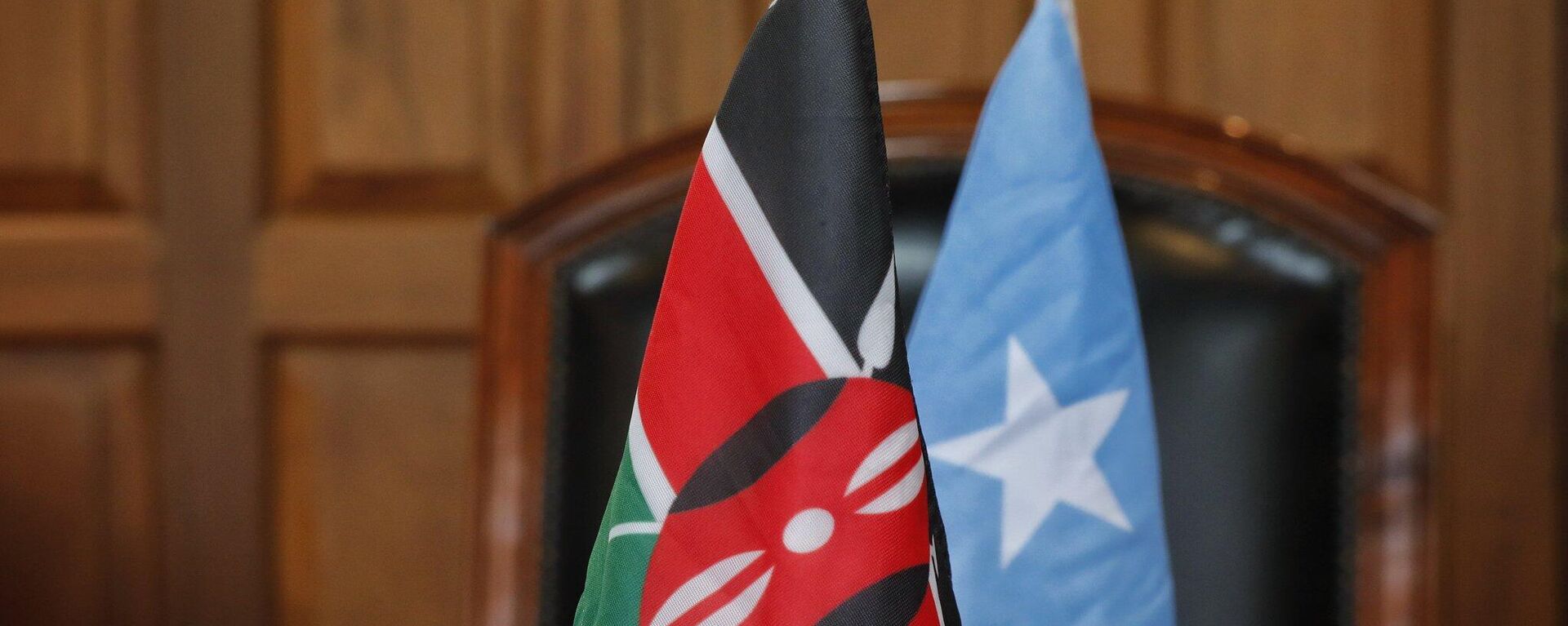https://en.sputniknews.africa/20230528/somalia-pledges-to-adopt-direct-universal-suffrage-abolish-premiership-1059534751.html
Somalia Pledges to Adopt Direct Universal Suffrage, Abolish Premiership
Somalia Pledges to Adopt Direct Universal Suffrage, Abolish Premiership
Sputnik Africa
Somalia's government and the East African country's federal member states said Sunday that direct universal suffrage will be introduced, with local elections scheduled for June 2024.
2023-05-28T14:51+0200
2023-05-28T14:51+0200
2023-05-28T14:51+0200
sub-saharan africa
east africa
somalia
elections
reforms
hassan sheikh mohamud
prime minister
https://cdn1.img.sputniknews.africa/img/07e7/05/1c/1059534920_0:320:3072:2048_1920x0_80_0_0_f62f6e4dde7366ef4eba494e92a12fc8.jpg
The move follows a pledge by President Hassan Sheikh Mohamud in March to end a complex indirect system that has been in place since 1969.The reform aims to "encourage the multiparty political system" that is independent and "corruption free," it added.The Somali government also agreed to abolish the post of prime minister, which is currently held by Prime Minister Hamza Abdi Barre. The new reforms in Somalia will also include a shift to a two-party political system in which "only two political parties will compete democratically for the people's votes," according to the Somali National News Agency (SONNA).Somalia is struggling to emerge from decades of conflict and chaos, while battling a bloody Islamist insurgency and natural disasters, including a punishing drought that has left millions facing hunger.The country has not held nationwide one-person, one-vote elections since 1969, when General Siad Barre seized power.Instead, clan affiliations have been the organizing principle of Somalia's politics, with influential roles such as speaker, prime minister and president divided among the main groups.State legislatures and clan delegates also pick lawmakers for the national parliament, who in turn choose the president.But rivalries among the clans have resulted in decades of strife and political wrangling, which in recent years have been exploited by Al-Shabaab* militants aligned with Al-Qaeda*.*terrorist groups banned in Russia and other countries
https://en.sputniknews.africa/20230516/kenya-somalia-agree-to-border-reopening-after-12-years-of-closure-due-to-terrorist-threat--1059283252.html
east africa
somalia
Sputnik Africa
feedback@sputniknews.com
+74956456601
MIA „Rossiya Segodnya“
2023
Agence France Presse (AFP)
Agence France Presse (AFP)
News
en_EN
Sputnik Africa
feedback@sputniknews.com
+74956456601
MIA „Rossiya Segodnya“
Sputnik Africa
feedback@sputniknews.com
+74956456601
MIA „Rossiya Segodnya“
Agence France Presse (AFP)
somalia, somalia news, somalia elections, somalia election system, general election, direct universal suffrage, direct election in somalia, hassan sheikh mohamud,
somalia, somalia news, somalia elections, somalia election system, general election, direct universal suffrage, direct election in somalia, hassan sheikh mohamud,
Somalia Pledges to Adopt Direct Universal Suffrage, Abolish Premiership
Agence France Presse (AFP)
Muhammad Nooh Osman
Writer/Editor
Somalia's government and the country's federal member states said Sunday that direct universal suffrage would be introduced, with local elections scheduled for June 2024.
The move follows a pledge by President Hassan Sheikh Mohamud in March to end a complex indirect system that has been in place since 1969.
"The basic principles should be that the election of the Federal Somali Republic must be one that gives the public the opportunity to cast their votes democratically in a one-person, one-vote system," the government said after reaching an agreement with state leaders.
The reform aims to "encourage the multiparty political system" that
is independent and "corruption free," it added.
The Somali government also agreed to abolish the post of prime minister, which is currently held by Prime Minister Hamza Abdi Barre.
This is not the first time that the post has been abolished in the East African country. The office was previously abolished in October 1969 but revived on February 1, 1987. In addition, the post was vacant from May 1993 to October 8, 2000.
The new reforms in Somalia will also include a shift to a two-party political system in which "only two political parties will
compete democratically for the people's votes," according to the Somali National News Agency (SONNA).
Somalia is struggling to emerge from decades of conflict and chaos, while battling a bloody Islamist insurgency and natural disasters, including a punishing drought that has left millions facing hunger.
The country has not held nationwide one-person, one-vote elections since 1969, when General Siad Barre seized power.
Instead, clan affiliations have been the organizing principle of Somalia's politics, with influential roles such as speaker, prime minister and president
divided among the main groups.
State legislatures and clan delegates also pick lawmakers for the national parliament, who in turn choose the president.
But rivalries among the clans have resulted in decades of strife and political wrangling, which in recent years have been exploited by Al-Shabaab* militants aligned with Al-Qaeda*.
*terrorist groups banned in Russia and other countries



